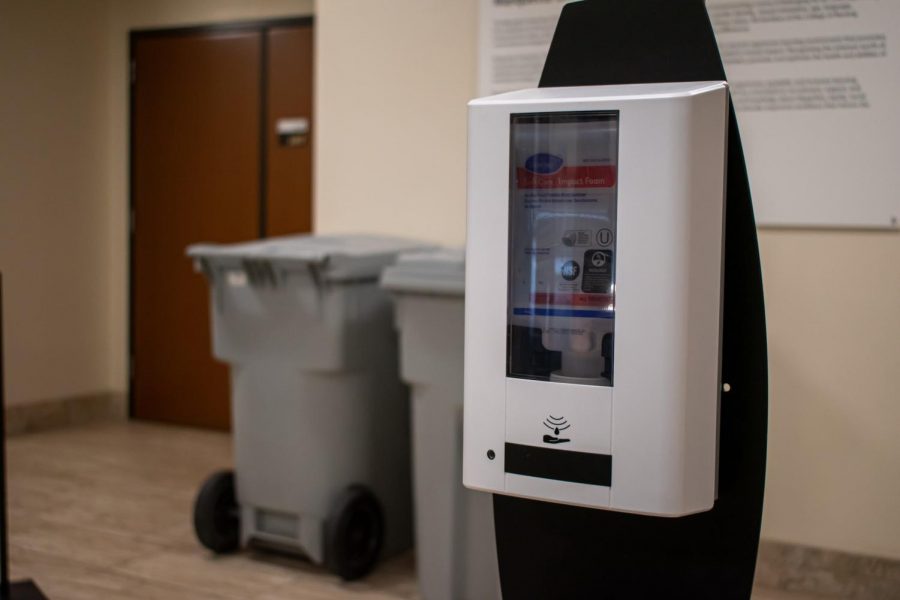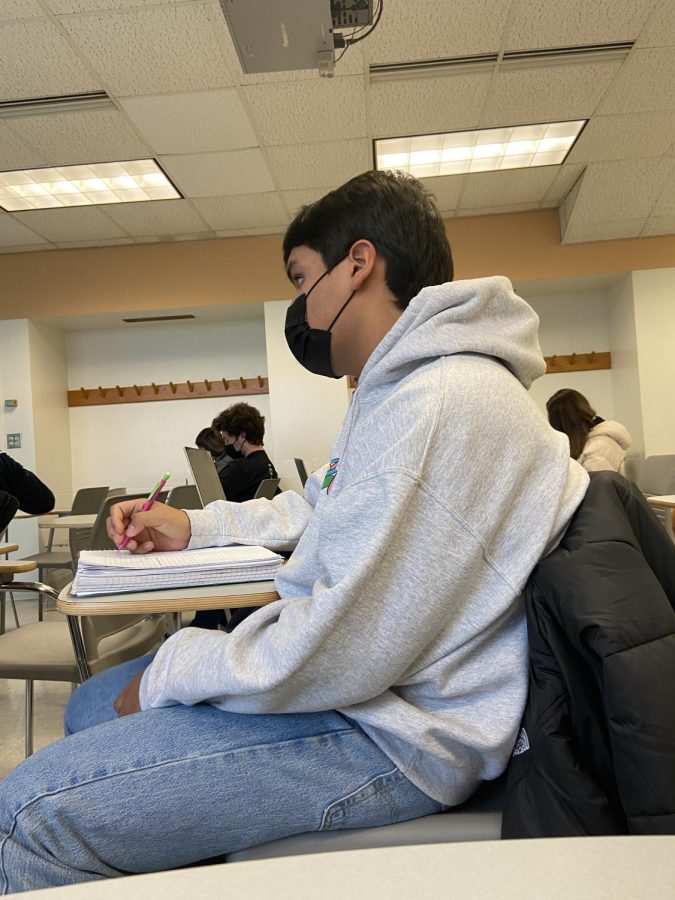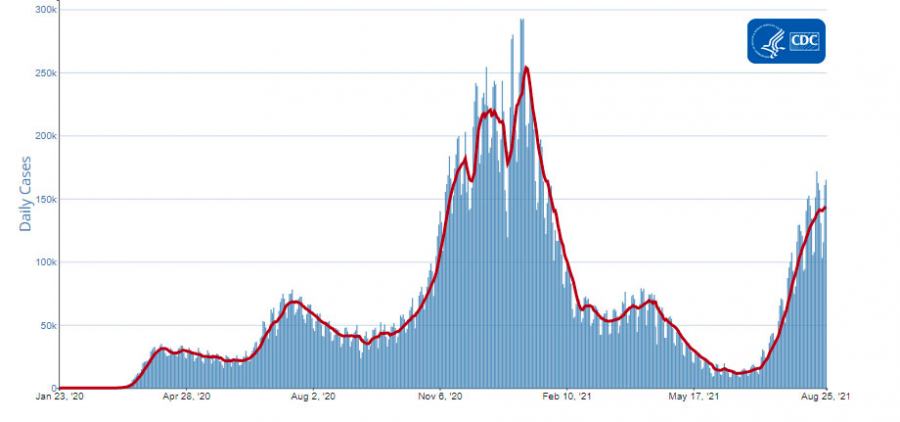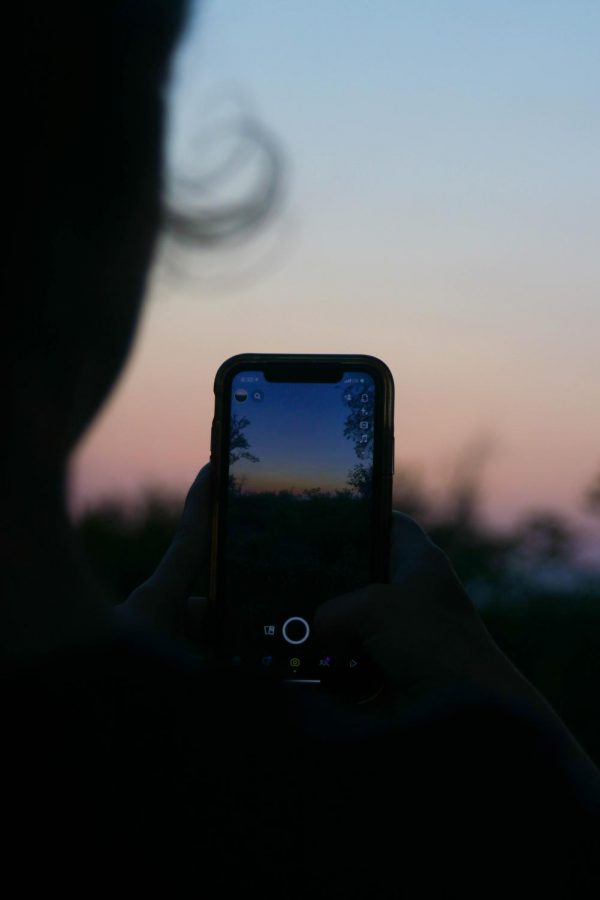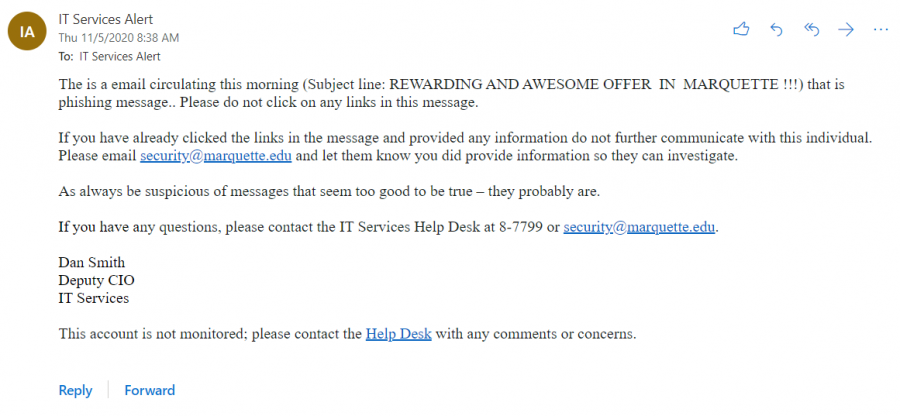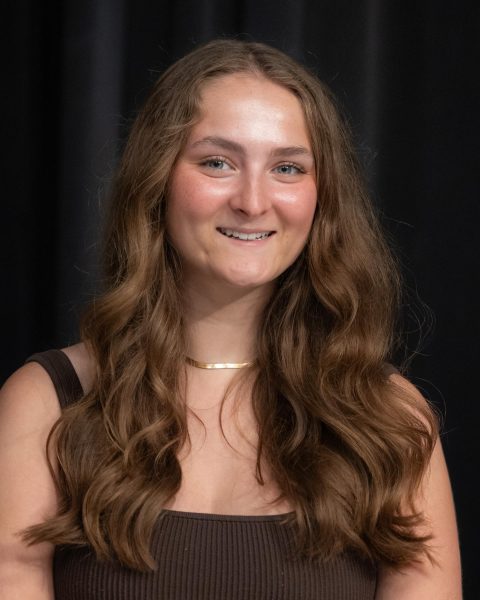Marquette University has received a supply of COVID-19 vaccinations that can be administered to frontline health care workers, police personnel and adults of ages 65 and over. This is group 1A and 1B.
Lynda Connor, a staff nurse at the Marquette Medical Clinic, said in a Feb. 3 interview with the Marquette Wire, that she hopes Marquette students will be able to receive the COVID-19 vaccine by late spring, or early June.
“We would love to say before that (but) we have to follow the state guidelines,” Connor said. “We cannot go beyond those state guidelines.”
Erin Kill, a first-year student in the College of Arts & Sciences, said she is excited for the vaccine to come out and to become more popular so life can return to the way it was before COVID-19 pandemic broke out.
“I don’t really have any worries about it [the COVID-19 vaccine] just because I’ve heard stories from people who have gotten it, and they don’t so far have any short-term effects,” Kill said.
She said she would be worried about it having any long-term effects, but said it is still important to get the vaccine out now so life can return to normalcy.
According to the Center of Disease Control and Prevention (CDC), common side effects of the COVID-19 vaccine include swelling, pain near the injection site, fever, chills, tiredness, and headache, but these will all go away in a few days after the shot.
Lily Haugen, a sophomore in the College of Education, said she does not have any worries about the vaccine.
“I’m sure that there are risks to it, and I know the whole thing where you have to stay 50 minutes after to make sure there’s no side effect, but honestly, I think the benefits outweigh the risks,” she said.
After being vaccinated some hospitals/clinics make people stay there up to 50 minutes to ensure nobody has any major reactions from the vaccine.
Haugen said she would get the vaccine to ensure that everyone around her is protected.
“I just think the biggest thing is that I’m not worried about my own health, but it’s who I can pass it to and the people around me who are immunocompromised that I can give it to,” she said. “I would jump at the chance to get one.”
There are two vaccines approved by the CDC to prevent COVID-19. The Moderna and Pfizer-BioNTech COVID-19 vaccine. The CDC lists how being vaccinated is a key tool to help the world return to normal.
Both vaccines are mRNA vaccines meaning you will need two shots for the most protection against COVID-19. For the Moderna vaccine one would receive their second shot 28 days after their first shot; while for the Pfizer vaccine one would be vaccinated again 21 days after their first shot. Although one should get their second dose as close to these time intervals as possible, the CDC said there is, “no maximum interval between the first and second dose for either vaccine. You should not get the second dose earlier than the recommended interval.”
The CDC also encourages people to get vaccinated once they get the opportunity to because it has shown to be highly effective at preventing COVID-19, and protects others who are at an increased risk for severe illness from COVID-19.
Maddie Connell, a first-year in the College of Engineering, said she trusts the vaccine.
“I fully trust the medical professionals, so no I don’t have any worries or concerns about the vaccine,” Connell said.
There have currently been 607,000 COVID-19 cases in the state of wisconsin and 6,748 of those 607K have died from COVID-19. Here at Marquette there have been 1,055 confirmed cases of COVID-19 on campus.
Correction: A previous version of this story incorrectly stated that the Dean of the College of Nursing, Janet Krejci said Marquette students may be able to expect the COVID-19 vaccine sometime this spring. Krejci was not interviewed for this story.
The story has been updated to correctly state what Lynda Connor, a staff nurse at the Marquette Medical Clinic, said in a previous interview with the Marquette Wire. Connor mentioned the hope of vaccinating students, but said that the clinic must follow state guidelines.
The Wire regrets this error.
This story was written by Julia Abuzzahab. She can be reached at [email protected]


